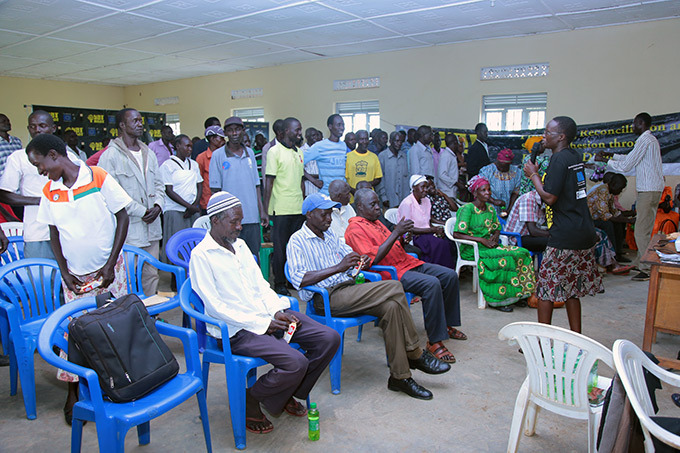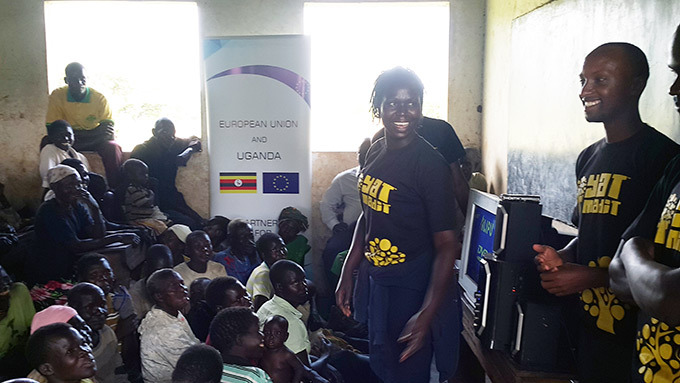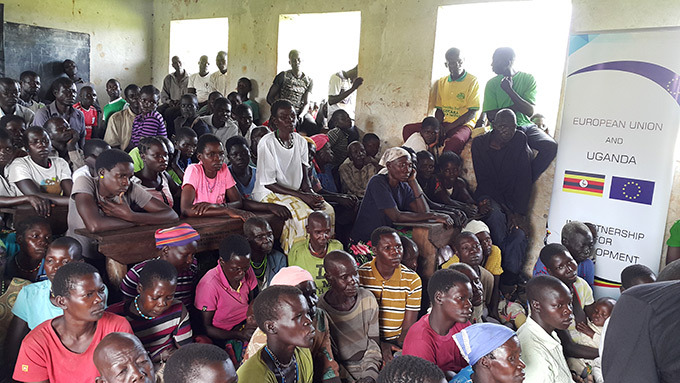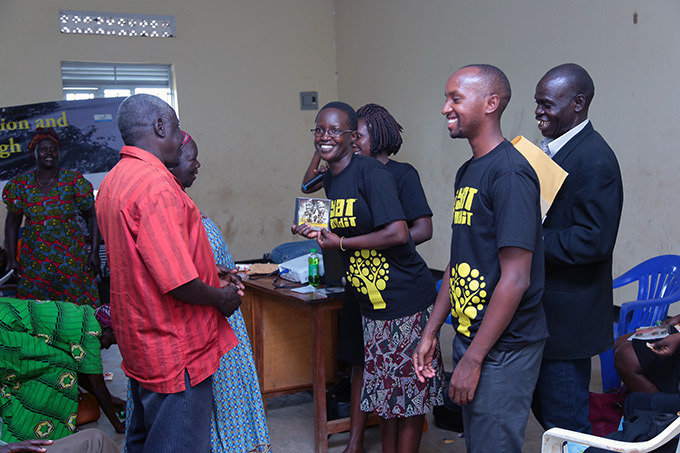When broadcasting media offers solutions in post-war areas
Oct 08, 2018
One of the strategies devised to curb conflict is the usage of broadcast media, through Radio and TV drama series.

EDUTAINMENT-Since the guns went silent in Northern Uganda close to a decade ago, the region has continued to face great challenges for a long time.
Parts of North and North-Eastern Uganda have continued to be a volatile mix of instability and poverty and as a result experience various challenges such as violent community disputes over boundaries or resources, or sexual and gender-based violence in the process of recovery.
However, there have been concerted efforts to restore peace and stability in the region over the years. Many non-government oganisations (NGO) have pitched camp in the region over the years trying to deflate conflict drives that can easily trigger events of violence.
One of the strategies devised to curb conflict is the usage of broadcast media, through Radio and TV drama series.

Drama can be used to address the underlying issues that fuel conflicts based on real life situations in the region. It demonstrates alternative ways of dealing with conflicts, leading to more social cohesion, sustainable peace and respect for cultural and human rights.
So, recently as our vehicle formed a cloud of dust behind it snaking its way through narrow murram roads of Pader district and Kitgum district in Northern Uganda, the aim was to take a drama series as a way of offering solutions in preventing conflict drives.
The drama series, part of a multi-media project called "Crossroads" and supported by the European Union, ICCO and Stichting Doen, is titled "Yat Madit."
The Story
The story in the drama series is set in a post-conflict Northern Uganda in a small trading centre known as Yat Madit recovering from years of war. It is a typical African village trading centre away from the big city or district.
The centre that is more of a village than a town has a main road, and smaller paths or roads into the rest of the village where homes can be seen. There are blocks of shops, a growing slum area, an administration block, a school and a bar within the vicinity.

The dwellers of this place walk from day to day, in search of a decent life. The trading center is inhabited by people from different cultural backgrounds, which is visible in the market. Faced with challenges that come with the aftermath of the war, individuals living in the trading centre must find solutions to these challenges, that include gender based violence, unemployment, alcoholism, resettlement after returning from abduction or internally displaced person's camps, among others.
Will the Yat Madit people be able to keep the volatile community together? How do the individuals and the community respond to their words of wisdom? How do their decisions help the community and individuals move forward?
Residents' feedback
Our first stop was in Puranga sub-county, Apuor parish in Pader district on a fine sweltering afternoon. According to the area's LC3, John Bosco Oringa, the area is a borderline between Acholi and Langi meaning it has been ravaged by ethnic tensions before, among others.
"This area is mixed with different ethnicities, the langi and the Acholi which means there have been tensions before. But after them watching this drama series, I think it will bring enough peace in the area. They will also take the information to our lower communities at village level.

Oringa continued, "Right now there are no tensions but during the times of former presidents Milton Obote and when Tito Okello took over, there was tensions from Acholi who were not seeing Langi as part of them and vice versa. After this training, I assume they will have got the importance of being together and reconciling in case something went wrong."
He added, "The roles these drama series play in communities like ours is that people get to see reality through a picture. As a leader, what I have picked from Yat Madit is that, once we sit down to solve a problem, we can achieve so many solutions."
The drama series was played on a TV screen for the leaders, elders and youth that got wind of the viewing session and attended. After one hour of them watching three episodes of the drama series, a discussion led by MFA team was conducted to relate the drama series to their day-to-day lives. Engaging and lively as the discussion was, the most prominent challenges that were discussed the most were gender-based violence, land disputes and hostility towards the Langi.
Miriam Ateng, 42, promised to take the lessons picked from the dialogue and drama series to her village, "Yat Madit has showed us what we have not known for a long time. Now I am going to sell the idea to the village people. It has taught us to stay together peacefully in our community. If we have problems in the neighbourhood, we have learnt that we can sit down and reconcile and come up with clear information that we can also teach our young children. We should not also be hostile to those that come to disorganise our communities but seek peaceful ways of reconciling."
Mathew Obok Moro, 63, an opinion leader from Onyede village, said he related the drama series to a case with his in-laws who had land disputes.

He said, "When I was watching this drama, I remembered a case my in-laws had when they wanted to share their father's properties. In the movie you saw the character of Opio who was not in need of welcoming his brother. He wanted to be the only one to use all the properties of his late father. This exposes us to the succession act because we see so many men die and leave behind so many children.
Moro continued, "We have also had challenges like land disputes, differences among tribes and differences among religious communities. Since so many conflicts happened within our area, we have learnt a lot on dealing with them. Now we know how to settle those cases by mediation and counseling. We also now know how to sensitise them as per our rights; right of people with disability, women's rights and children.
Paddy, a Parish chief says: "As a social worker, the teachings of Yat Madit have focused exactly on what is transpiring in the community. It has given us a lot of highlights, which shall enforce our implementation deep in the villages. My experience is, when it comes to reconciliation and targeting dialogue, I emphasise that reconciliation should not bear any condition attached. If you are reconciling with a partner, you do not have to go back deep to the pain one has inflicted on you and suggest that it should be paid first before reconciling; things will not work out in the community.
These drama series gripped the Keselem people who had got at the venue, Locom Primary School, in Orom Sub-County. The attentive faces of elders, the young and youthful crammed in one classroom of the school clearly spoke a good deal of volumes that they related with the storyline.
When the drama series, that spanned close to one hour, ended, the attendees offered their round of applause and first engaged in soft murmurs of excitement before the dialogue, led by the MFA guide, ensued.
Keselem Village has approximately 300 dwellers and, according to parish Chief Hannington Ocan, the main challenge in the village is high levels of illiteracy, "This is a place that has a high level of illiteracy as the main challenge. We have over 14 pupils in this very school, we are at and we have had incidences where sometimes parents come pick their children during class time and take them to the gardens. These people need to be sensitised about the benefits of education and I think it is one of the lessons they have picked through watching the drama series."
And indeed, during the dialogue at Locom Primary School, most attendees only communicated in Nyangia, an ethnic dialect influenced by Acholi and Dodoth and seemingly on the verge of extinction.
